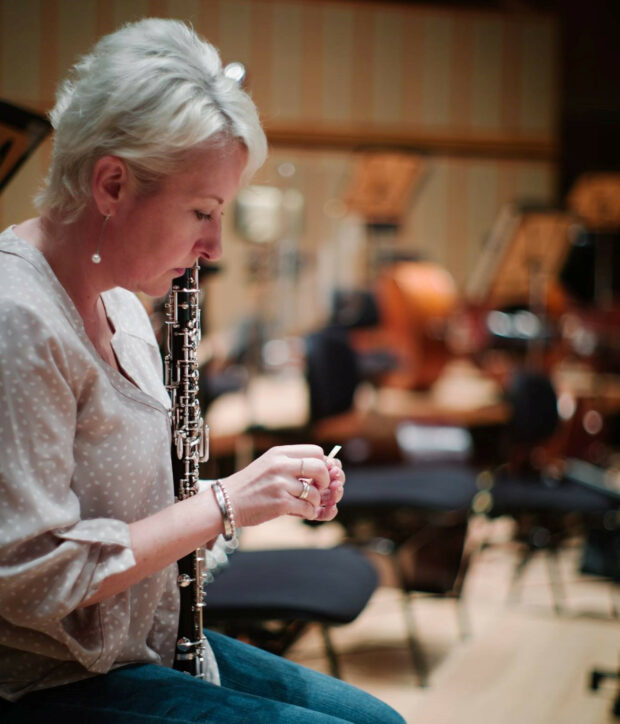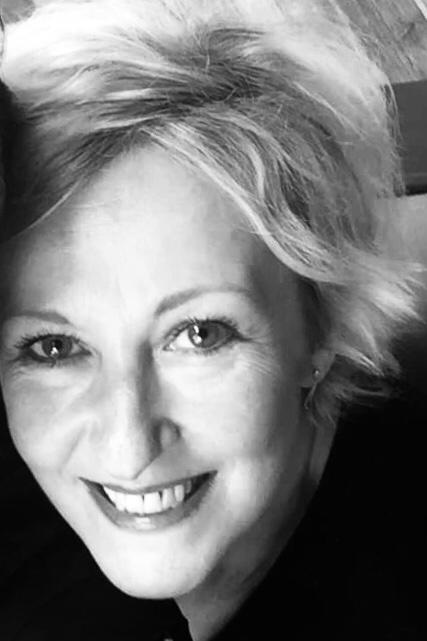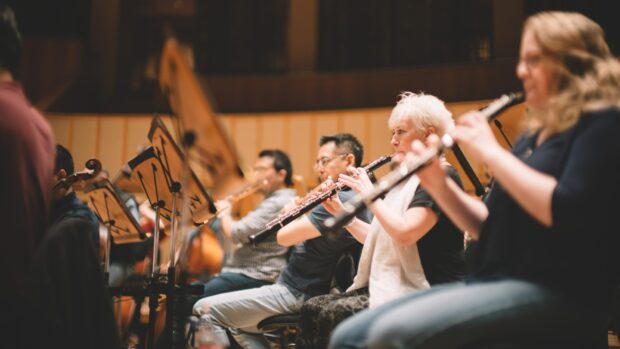

Did you know that orchestras tune to the Principal Oboe? Meet Rachel Walker, Principal Oboe in the Singapore Symphony Orchestra, as she shares with us the joys and challenges of being a professional musician. We speak to Rachel to find out how reeds may break but the musician holds strong.
Apart from playing with the SSO, you also teach at the Yong Siew Toh Conservatory of Music. When you were a student, who or what influenced your musical life and career the most?
Definitely the biggest influence on my musical life or the way I teach was my time at Chetham’s School of Music in Manchester. I was accepted there as a boarder at 14 and I adored every minute of my four years there. To me, it was such a relief to finally live with other kids my age who actually wanted to sit alone in a room and practise for hours on end, every single day. I was suddenly part of a special family. Musicians all over the world ARE a special family, but Chetham’s was the place I first realised it. I love it when I see my students at YST grasping the same thing, and growing and developing with that knowledge.
Could you share any tips on avoiding the physical and mental stresses of musician life?
Eat healthily, exercise, get enough quality rest, and maintain a sense of perspective. The stress we feel on stage before or during a solo may often be completely debilitating, but if we make a mistake, nobody is actually going to die!
Make sure you have a strong social circle outside of musicians for perspective. I read somewhere that surgeons and airline pilots undergo the same level of stress as a Principal oboist right before a big solo!
Professional musicians in the course of their work, tend to perform repetitive actions during practice and rehearsals. This sometimes leads to injuries. As an oboist, how do you keep yourself from injuries?
I have been lucky enough not to have any recurring problems due to playing the oboe (although I know an oboist who suffered detached retinas due to the pressure of blowing!) That said, eight years ago, I did break my left wrist in five places and it is now full of titanium. It often gives me pain, especially in cooler weather or after a long session of playing. I do physio exercises for that, to try and maintain the range of motion I have, which is far less than before. Sadly, my left hand ability on the piano will never be what it was.
Many young musicians hope to perform in professional orchestras. What are some audition tips you would share?
For oboists, I would say you always need more reeds than you think, so be highly organised. If you're travelling abroad for an audition, or on tour in different countries, take as many reeds with you as possible (new, old, hard, soft... a good selection) — and some blanks, as sometimes nothing works at all and you may have to make a completely new reed!
You have now been with the SSO for almost 18 years. Tell us about some of your highs and lows on the way here.
From starting music lessons as a child, to making a career in musical performance, is an incredibly tough, demanding, often lonely journey. You need to be utterly committed to your instrument and to the craft, because you may face many knocks to your confidence.
For instance, we often spend many weeks preparing for job auditions, and then travelling perhaps to a foreign country where you know no one to play an audition. Sometimes just for a few minutes, because the panel has “heard enough, thank you.”
Then you go home and start preparing for the next audition… and so it goes on. You need a lot of strength of character.
I, like so many, struggled financially too. After I graduated from the Royal Academy of Music in London, I was living in a freezing cold single garage (no kidding!) and had a huge bank overdraft. When the English Chamber Orchestra first called me to invite me to play with them, I had to call the bank and beg them (in floods of tears) to please extend my overdraft, as I had absolutely no money to even travel to the concert hall.
However, I have been lucky enough to experience some incredible highs too. The sheer joy of working with some of the world’s greatest musicians and conductors and in many of the world’s best concert halls, the opportunity to travel all over the world and the amount of incredibly special people I have had the chance to meet is all thanks to music.
I have given my life to music, but it has in turn, given me my life.

